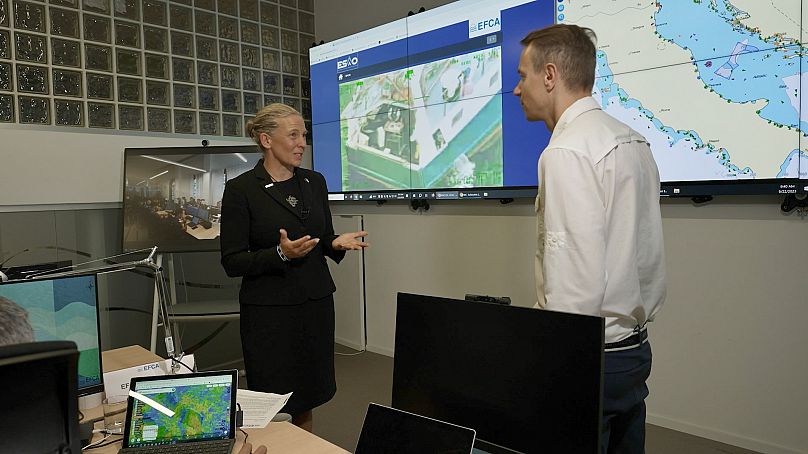Ocean spoke with the Executive Director of the European Fisheries Control Agency (EFCA), Dr Susan Steele, to discuss the practical value of interagency collaboration across multiple water zones.
As part of efforts to enhance maritime security and fishery control, three EU agencies have wrapped up a groundbreaking 12-day operation in the Adriatic Sea.
Spearheaded by the European Fisheries Control Agency (EFCA) and in collaboration with Italy, Croatia, and Slovenia, the mission aimed to seamlessly coordinate interagency efforts across multiple water zones.
EFCA led the charge with their advanced patrol vessel, the Ocean Sentinel, and air support. The European Maritime Safety Agency (EMSA) provided drone surveillance and real-time maritime tracking, while Frontex deployed six coastal patrol boats. Daily coordination meetings were held at EFCA's European Coordination Centre in Vigo, Spain.
EFCA's Executive Director, Dr Susan Steele, discussed the mission's benefits with Euronews and explained the practical value of working together.
"The European Fisheries Control Agency has a primary aim in harmonisation and coordination of fisheries control. But when you're at sea, our seas are all joined, we're linked by them," Susan Steele explained.
"Our fish don't know boundaries and swim between them. And when we're working at sea, we're not just working in one area. We always need to work together and to coordinate.
"So under the Coast Guard functions, there are many things that affect all of us at sea. And working with Frontex and with EMSA, we're able to in these MMOs (Multipurpose Maritime Operations), we're able to look at the different possible functions. How do we work together for search and rescue exercises? How do we work together for an oil pollution response? But for us, fundamentally, it's always about the fisheries control side of it and the risks that are there.
"So with this exercise, it's not just bringing together the agencies, it's bringing together member states as well. So we're very, very pleased in this that we have Croatia, we have Italy, we have Slovenia all working together as well because in order for any of us to be effective and efficient, it will be done by working together," she concluded.













